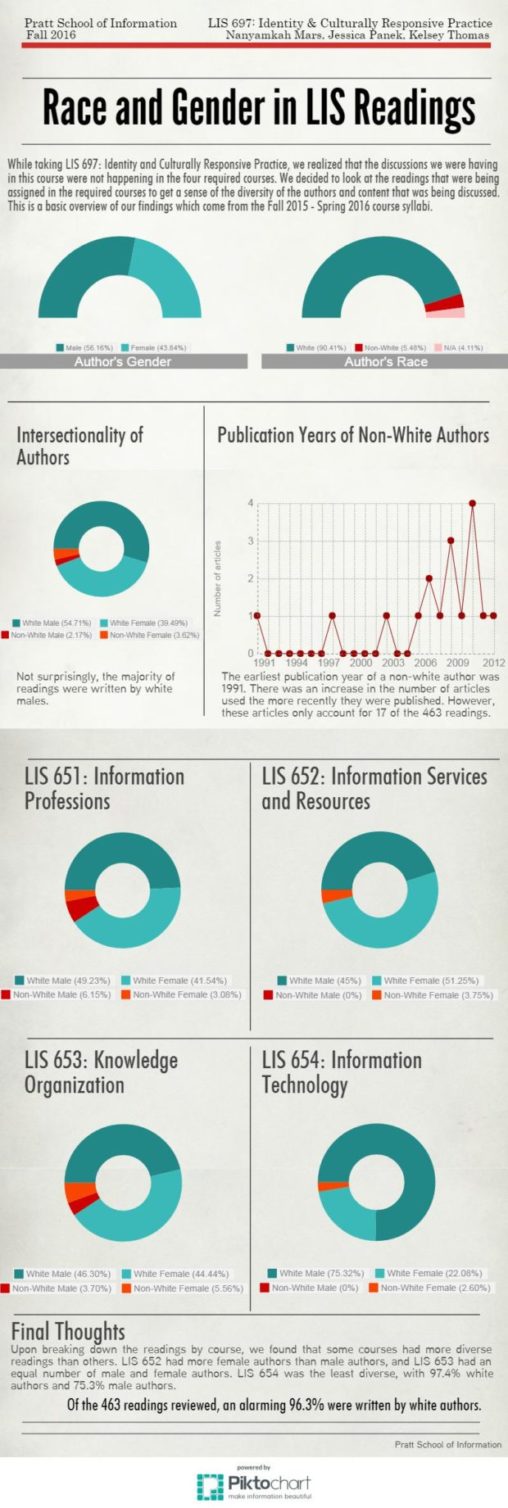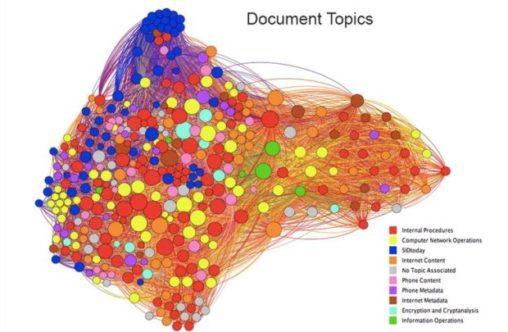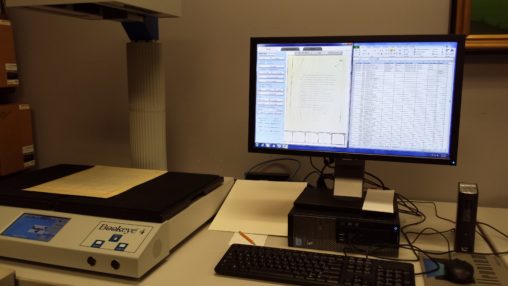Tag: researchPage 2 of 3
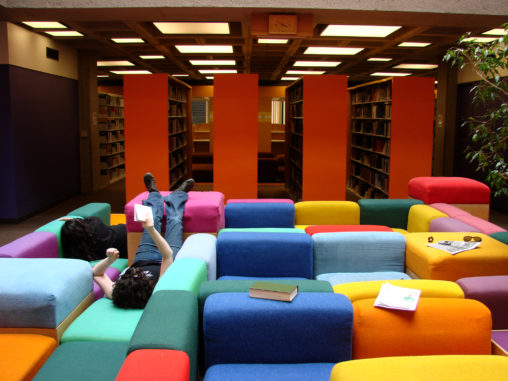
“Growing the Academic Library: Past, Present & Future” is an exploration of how academic libraries have changed and grown, organized into three major areas: resources, physical space, and education. This comprehensive literature review provides an understanding of where academic libraries have been as well as where they’re going, the latter including emerging ideas such as patron-driven acquisition and student activist archiving. An overall theme is the symbiotic relationship between the library and the wider university.
The panel will present the findings of two projects related to the adoption of the digital personal assistants like Siri, Alexa and Cortana. The findings pertaining to the technology adoption in public spaces, existing issues and requirements for the ideal digital assistants will be shared.
This project originated as a paper reporting on the experiences of archival producers in the field of historical documentary production. Based on those conversations, I created a visualization of data comparing gender and production credits across American Experience documentaries from 2015 to 2017.
The premise of this project analyzes the impact of eliminating or keeping the penny from the United States Currency Coins and the results of saving the one-cent denomination through comparative analysis. The research examines the use of e-government information and its availability to explore the penny within the digital ecosystem.
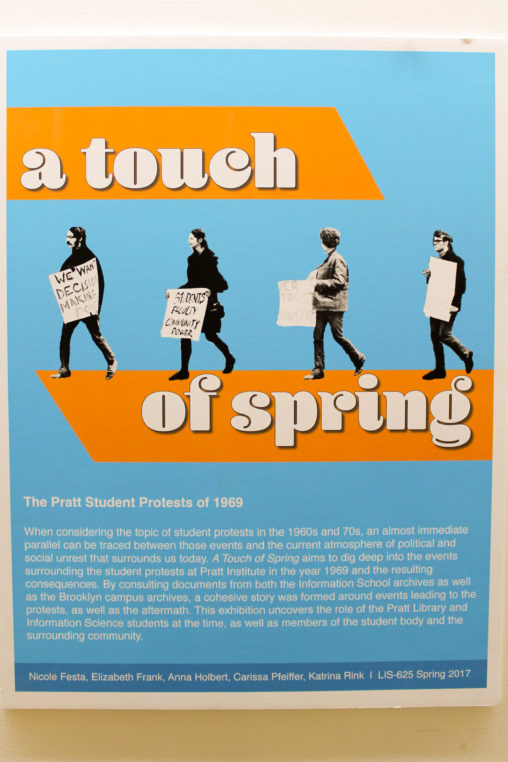
In the spring of 1969, Pratt Institute erupted in protest.
Students, faculty, workers, and members of the community joined together and forced the school to shut down to address issues of civil rights, neighborhood gentrification, and other social and political concerns.
This presentation discusses an exhibition currently on display on the 6th floor that makes use of archival records documenting this turbulent period.
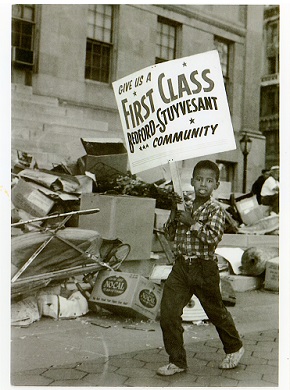
Projects in Digital Archives students present on a collaborative project with the Brooklyn Public Library to digitize audio interviews from the Civil Rights in Brooklyn Project. The interviews include interviews with notable civil rights activists from the Brooklyn chapter of the Congress of Racial Equality (CORE).
“Proposal and design story for the creation of Grapevine – a mobile application for women who are actively dating. Based on extensive user research, the app to leverage’s the communication aspects within a woman’s core
group of friends about dating life. Further, the app includes a safety feature – group back-up – to ease a
woman’s fears of physical safety and let her concentrate on having fun.”
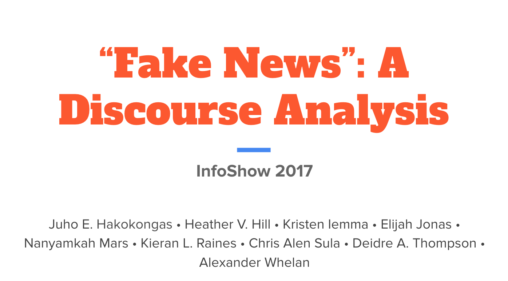
This project analyzes the circulation of the term “fake news” as a rhetorical device, used to make political assertions about the truth of various stories and sources. These sources range from longstanding and popular news outlets to more recent news websites and social media. Across these sources, we examine the use and users of the term “fake news”, its frequency of use, and the sources and topics that are described as “fake news”.

This paper examines the hardware and software tools (write blockers, kryoflux drive, AccessData, FTK) used in law enforcement for forensic analysis and how these tools have been adopted by archivists for born-digital archiving. It explores how these tools were used when NYPL acquired Timothy Leary’s estate which included over 375 floppy disks. The paper also briefly touches on some of the current challenges of archiving google docs, twitter feeds and emails.
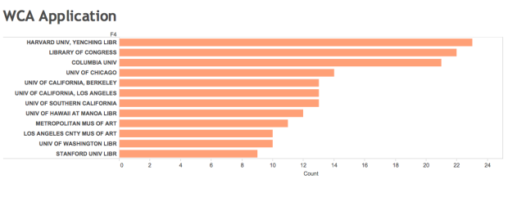
This project explores library collection assessment tools and methodologies to locate institutions with the most comprehensive coverage of Korean modern art books in the US.. The process evaluates two collection-based electronic data mining methods and experiments with OCLC’s WorldCat FirstSearch as an assessment tool.
How do librarians weigh the risks and rewards of switching to any Open Source Software (OSS), particularly those systems that run major library functions? The goal of this project was to research and review how business models for OSS companies, programming language, sponsorship, and type of Open Source license affect the sustainability of OSS projects. This is helpful to librarians in assessing the risks of adapting any OSS by comparing the needs of libraries with the overall Open Source marketplace.
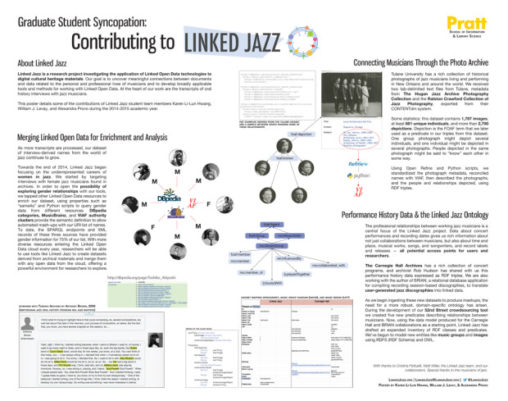
This poster highlights our research as student members of the Linked Jazz project, an ongoing exploration in applying Linked Open Data (LOD) technologies to cultural heritage materials. Research directions include the use of LOD for dataset enrichment in digital humanities research; creating RDF triples to describe image resource types; and mapping elements from various music and jazz databases to assign entities and properties from ontologies.

